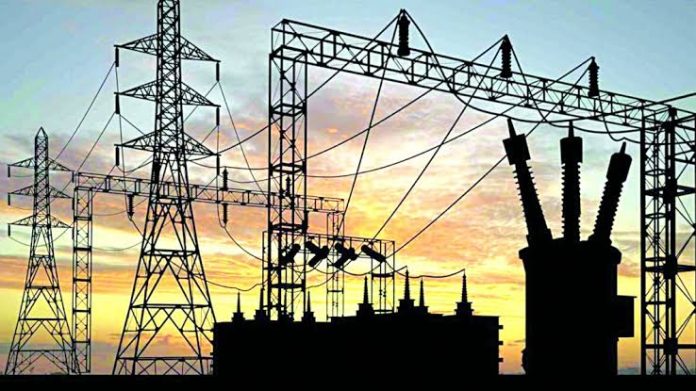Experts have faulted the reviewed Multi-Year Tariff Order (MYTO) by the Nigerian Electricity Regulatory Commission (NERC), with the development still generating dust and debate among stakeholders in the electricity industry.
The conversation, which centres on poor metering exercise in the sector, further exposes weak capitalisation and underinvestment which have left a yawning gap in the provision of basic infrastructure in the country’s Nigerian Electricity Supply Industry (NESI).
NERCs new order to the 11 distribution companies pushed tariffs up by double of what consumers were paying even though for the year 2024, the federal government said it would bear the burden for end-users.
While the government is taking up the N1.6 trillion burden, the Nigerian Bulk Electricity Trading company’s budget in the 2024 appropriations only showed a subsidy plan of N450 billion, which means that the government may have to raise the funding locally or from the international market amidst high borrowing profile.
Energy experts have, however, warned that the tariff review will translate to increase in the cost of production and higher cost of doing business, job losses, and attendant inflation and bring untold hardship on the poor masses, regardless that the burden is currently borne by the federal government.
This adjustment is coming as data shows that a total of 51,631 power consumers were metered by the 11 Electricity Distribution Companies (DisCos) by November 2023.
This slow pace in the metering exercise shows that the number of unmetered customers has thus moved to 7,313,039, according to NERC.
The commission states that the total number of registered customers in NESI as of November 2023 was 13,112,134, while the total number of metered customers was 5,799,095, with the metering rate at 44.23 per cent.
According to the NERC, Ikeja Disco had the highest metering rate of 72.43 per cent, but was the only DisCo that did not meter any customer in November 2023.
The other 10 power distribution companies provided meters for customers in their various franchise areas.
The report also revealed that the highest complaints in NESI in November was the lack of meters, as this accounted for 62.23 per cent of the total complaints in the sector during the review month.
Other categories of complaints include billing (9.33 per cent), interruption (8.27 per cent), disconnection (0.97 per cent), voltage (1.63 per cent), load shedding (0.28 per cent), delay in connection (0.17 per cent), and others (17.13 per cent).
It stated that the total number of complaints received in November was 108.542, while 103,898 complaints were resolved, at the rate of 95.72 per cent.
Reacting to the review, the president, Nigeria Consumer Protection Network, Kunle Kola Olubiyo, warned that higher tariff will translate to increased cost of production and higher cost of doing business, job losses, attendance inflation and bring untold hardship on the poor masses.
Olubiyo argued that this does translate into efficient service delivery and reliable power supply.
Olubiyo, who was a member of the National Technical Investigative Panel on Power System Collapses/System Stability and Reliability, questioned key indicators used in arriving at the current templates of electricity tariff review methodology.
He alleged the document was largely populated by over-invoicing, over-bloated prices of gas feedstock, and fake generation capacity.
He also said it was important to note that from May 2013 – January 2024 peak generation, peak transmission wheeling capacity, load dispatch and load evacuation had remained stunted at 5,800 megawatts.
He noted that in spite of an increased public sector spending spree in a supposedly privatised Nigerian electricity sector value chain, the customers, just like before, are being made to pay for darkness and services not rendered.
On his part, the managing director of Mainstream Energy Solutions, Audu Lamu, said the subsidy is not sustainable and a source of worry for investors.
According to him, the subsidy is “not enough for investors’ confidence because it does not completely remove the liquidity crisis in the sector.”
According to him, considering the huge outstanding receivables by GenCos, which are a contingent liability on government, continued subsidy means generation companies would still not be paid their invoices in full and when due.
“We are all aware of the funding challenges experienced by the government. The distribution companies’ inefficiencies would continue to be covered also by this action during which efforts to improve on ATC&C will be lacking as usual,” Lamu said.
President of Nigerian Economic Society and energy expert at the University of Ibadan, Prof Adeola Adenikinju, also said subsidy would not solve the challenges in the sector.
“Government has fiscal challenges, and the fiscal space is limited. Borrowing option is now limited because government debt has gone up significantly and we are reaching a threshold of sustainability of the debt. The consumer must bear the cost and the burden,” Adenikinju said.
According to him, that option remains the only feasible and sustainable solution, adding that the N1.6 trillion may only postpone the evil day.
Adenikinju said the sector must find a way to reduce the losses and the inefficiencies in the sector which are being passed to the public.
In the 2024 budget, the federal government earmarked N40 billion to settle outstanding electricity bills owed by ministries, departments, and agencies (MDAs). While the government is canvassing for a good power sector, the indebtedness of its agencies to the sector hovers at about N100 billion.
However, chairman of NERC, Sanusi Garba, conceded that the huge metering gap in the NESI is indicative of the weak capitalisation and underinvestment challenges with the DisCos.
-Advertisement-
Grab our latest Magazine, "Chief Wole Olanipekun, CFR, SAN, A man of wide horizons and deep intentions". Get your order fast and stress free.
For more details about Newswire Law&Events Magazine, kindly reach out to us on 08039218044, 09070309355. Email: newswiremagazine@yahoo.co.uk. You will be glad you did







